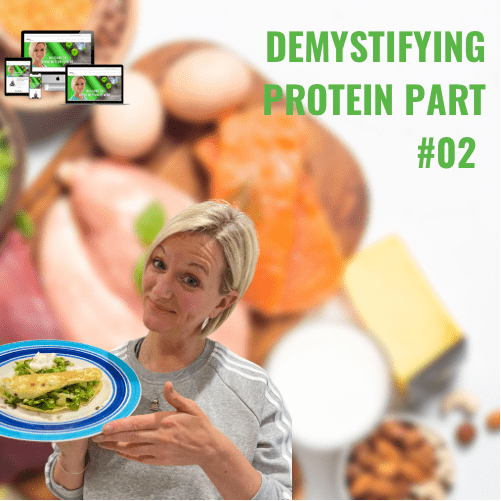HOW MUCH PROTEIN DO WE NEED?
The debate still continues on how much protein we need daily, but there appears to be a general agreement that active individuals need a higher intake than sedentary people.
THE AVERAGE INTAKE
For a healthy person of a healthy weight who is mainly sedentary and is not seeking changes in body composition – then an intake of 0.4 – 0.6 grams of protein per pound bodyweight is sufficient.
WHEN LOSING BODY FAT
Having a high protein intake during a calorie deficit is also important, as it is very anabolic, meaning we are more likely to preserve lean body tissue in the process.
WHEN BUILDING MUSCLE
The studies that look at muscle mass and protein intake tend to vary from 0.8-1.0+ gram per pound bodyweight, so it’s safe to say a balanced approach would be most beneficial, so around 1g per pound bodyweight is highly effective.
ELDERLY
The research shows a daily intake of 0.45-0.6 gram per pound bodyweight. Finally, those recovering from injuries may also benefit from a higher protein diet.
Here Are Some Great Reasons For You To Make Sure You’re Eating Enough Protein.
(Source: healthline.org)
1. Reduces Appetite and Hunger Levels
The three macronutrients — fats, carbs, and protein — affect your body in different ways.
Studies show that protein is by far the most filling. It helps you feel more full — with less food.
This is partly because protein reduces your level of the hunger hormone ghrelin. It also boosts the levels of peptide YY, a hormone that makes you feel full.
2. Increases Muscle Mass and Strength
Protein is the building block of your muscles.
Therefore, eating adequate amounts of protein helps you maintain your muscle mass and promotes muscle growth when you do strength training.
Numerous studies show that eating plenty of protein can help increase muscle mass and strength.
If you’re physically active, lifting weights, or trying to gain muscle, you need to make sure you’re getting enough protein.
Keeping protein intake high can also help prevent muscle loss during weight loss.
3. Good for Your Bones
Most long-term studies indicate that protein, including animal protein, has major benefits for bone health.
People who eat more protein tend to maintain bone mass better as they age and have a much lower risk of osteoporosis and fractures.
This is especially important for women, who are at higher risk of osteoporosis after menopause. Eating plenty of protein and staying active is a good way to help prevent that from happening.
4. Reduces Cravings and Desire for Late-Night Snacking
A food craving is different from normal hunger.
It is not just about your body needing energy or nutrients but your brain needing a reward.
Yet, cravings can be incredibly hard to control. The best way to overcome them may be to prevent them occurring in the first place.
One of the best prevention methods is to increase your protein intake.
One study in overweight men showed that increasing protein to 25% of calories reduced cravings by 60% and the desire to snack at night by half.
Likewise, a study in overweight adolescent girls found that eating a high-protein breakfast reduced cravings and late-night snacking.
This may be mediated by an improvement in the function of dopamine, one of the main brain hormones involved in cravings and addiction.
5. Boosts Metabolism and Increases Fat Burning
Eating can boost your metabolism for a short while.
That’s because your body uses calories to digest and make use of the nutrients in foods. This is referred to as the thermic effect of food (TEF).
However, not all foods are the same in this regard. In fact, protein has a much higher thermic effect than fat or carbs — 20–35% compared to 5–15% .
7. Helps Maintain Weight Loss
Because a high-protein diet boosts metabolism and can lead to a reduction in calorie intake and cravings, many people who increase their protein intake tend to be more successful on their weight loss journey.
9. Helps Your Body Repair Itself After Injury
Protein can help your body repair after it has been injured.
This makes perfect sense, as it forms the main building blocks of your tissues and organs.
10. Helps You Stay Fit as You Age
One of the consequences of again is that your muscles gradually weaken.
Being active and maintaining adequate protein intake will greatly reduce the chances of frailty, bone fractures, and reduced quality of life through ageing.
Great reasons for making sure you’re eating enough protein.
Jayne ?????

